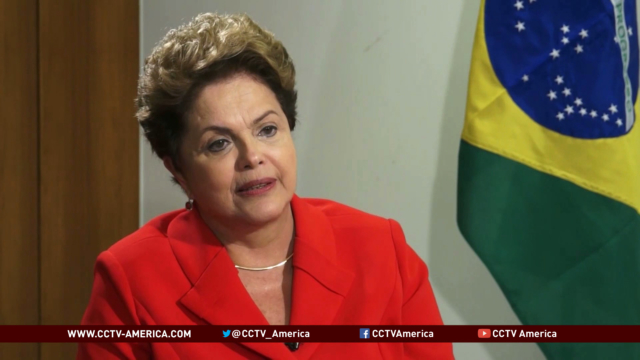Incumbent president Dilma Rousseff is the first woman to run the country, and she hopes to continue to with a win in Sunday’s election. Polls show Rousseff has a slight lead ahead of the election, but her administration has not always been well received. CCTV America’s Stephen Gibbs reports.
For most of the first three years of her presidency, Rousseff enjoyed relatively high popularity. The former guerrilla fighter, who had been imprisoned and tortured in the 1960s during Brazil’s military dictatorship, took office in 2011 with 55 percent of the vote. The economy was growing, albeit slowly, and the government continued to lift millions of people out of poverty.
But in June 2013, widespread protests erupted across Brazil against political corruption and public services that were viewed as poor. Rousseff said on national television that she heard the protesters’ concerns, and even agreed with them. This episode marked the beginning of a decline in her popularity.
During Rousseff’s presidency, Brazil’s relations with China, it’s biggest trading partner, grew. Rousseff is a major proponent of supporting increased growth in the BRICS grouping of developing or newly-industrialized countries that includes Brazil, Russia, India, China and South Africa.
Meanwhile, relations with the United States were often strained, particularly when revelations emerged that Washington’s National Security Agency had targeted Rousseff’s mobile phone.

Albert Fishlow, Professor Emeritus of Economics at University of California – Berkeley and Columbia talks about the economic challenges facing Brazil.

 CGTN America
CGTN America
